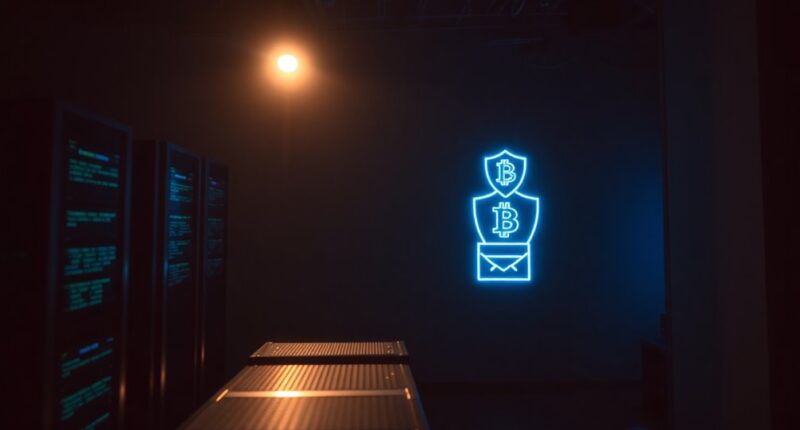Brute-force attacks on Bitcoin wallets involve systematically guessing your password until they find the right one. This can happen if you use weak passwords or if your email account gets compromised. To protect your wallet, you should use strong, complex passwords combined with multi-factor authentication. It's also wise to utilize cold wallets for storing large sums of Bitcoin, as they're less vulnerable to cyber threats than hot wallets. Staying informed about the latest security measures can further safeguard your investments. If you're curious about more ways to enhance your Bitcoin security, there's plenty more to explore.
Key Takeaways
- Brute force attacks involve systematically guessing passwords to gain unauthorized access to Bitcoin wallets, making strong passwords essential for security.
- Use multi-factor authentication (MFA) to add an extra layer of protection, ensuring that even if passwords are compromised, accounts remain secure.
- Regularly update and strengthen passwords, avoiding easily guessable information; consider using a password manager for complex password generation.
- Utilize cold wallets for long-term storage, as they are offline and less vulnerable to brute force attacks compared to hot wallets.
- Stay informed about phishing tactics and avoid clicking on suspicious links or providing personal information to unknown sources.
Understanding Bitcoin Security Risks
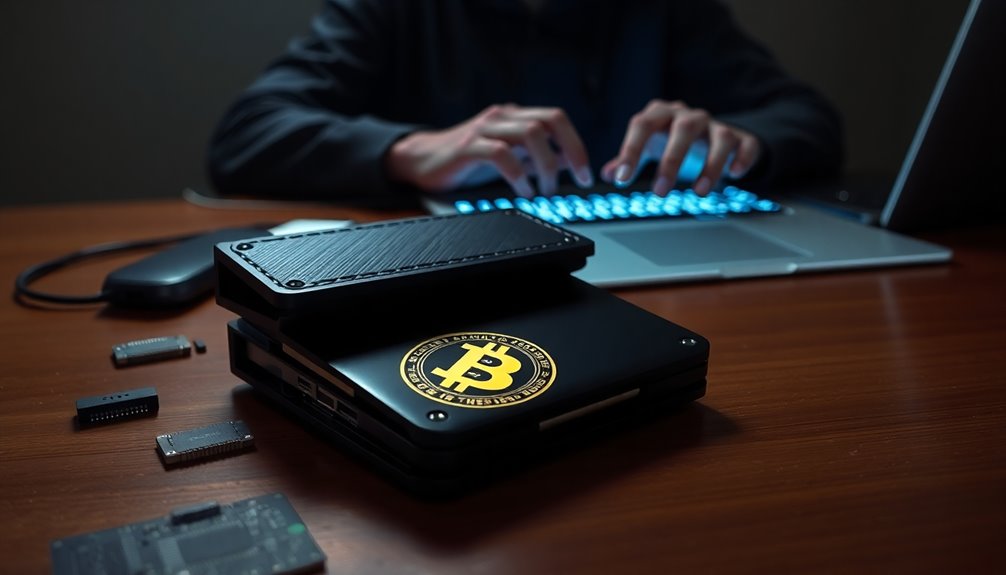
While Bitcoin offers exciting opportunities for investment and transactions, it also presents significant security risks that every user should understand.
One major threat is phishing and social engineering attacks, where bad actors create fake websites or profiles to trick you into revealing your private keys. These scams often target new investors, taking advantage of their lack of experience. The recent surge to over $95,000 per token has attracted even more new investors to the cryptocurrency market, making them prime targets for such scams.
Additionally, vulnerabilities in crypto wallets, particularly those generated between 2011 and 2015, expose millions of Bitcoins to potential attacks. Weak passwords can make your wallet susceptible to brute-force attacks, especially if your email account is compromised. Furthermore, understanding the various crypto wallet functionalities explained is crucial to safeguarding your assets. Many users often overlook essential security features, such as two-factor authentication and recovery phrases, which can significantly enhance wallet protection. By educating themselves on these functionalities, users can better defend against potential threats and ensure their digital currency remains secure.
To protect yourself, stay informed about these risks, use robust passwords, and enable multi-factor authentication for added security.
Regulatory Changes Impact Cryptocurrency Security
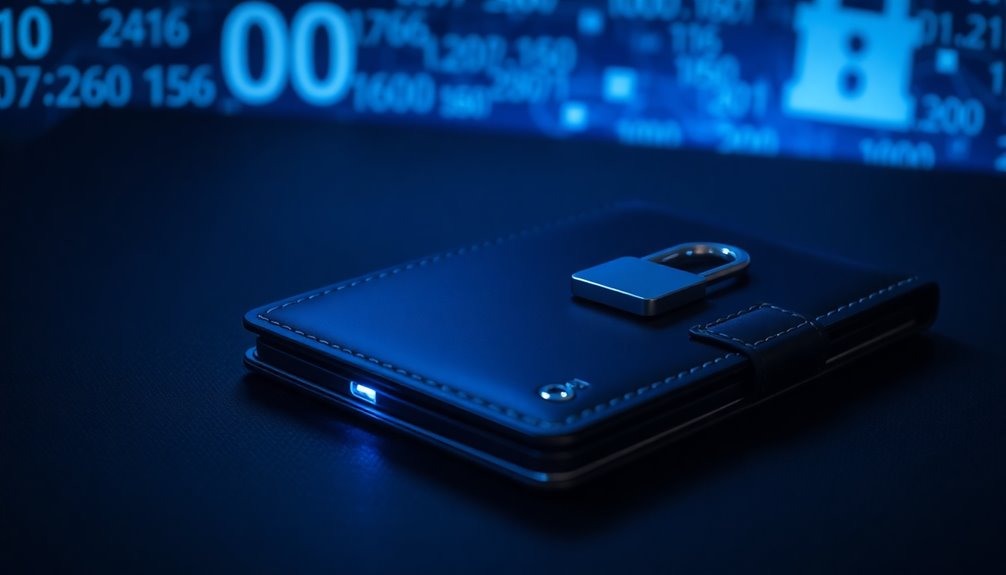
As you navigate the complexities of Bitcoin and its security risks, understanding how regulatory changes impact cryptocurrency security is increasingly important. Regulators are focusing on consumer and investor protections, enhancing fraud prevention and data privacy. This shift aims to ensure market integrity and deter deceptive practices, which can directly affect your investments. The increased scrutiny from regulatory bodies globally is also prompting companies to adopt more comprehensive security measures.
With multiple authorities overseeing transactions, the evolving regulatory landscape may introduce licensing requirements that clarify security practices. Additionally, the heightened enforcement environment, including actions from the SEC and CFTC, pushes for advanced security measures.
To safeguard your wallet, consider implementing two-factor authentication, using cold wallets, and regularly updating your software. Staying informed about these changes can help you better protect your assets in this rapidly developing environment.
Cryptocurrency Price Volatility
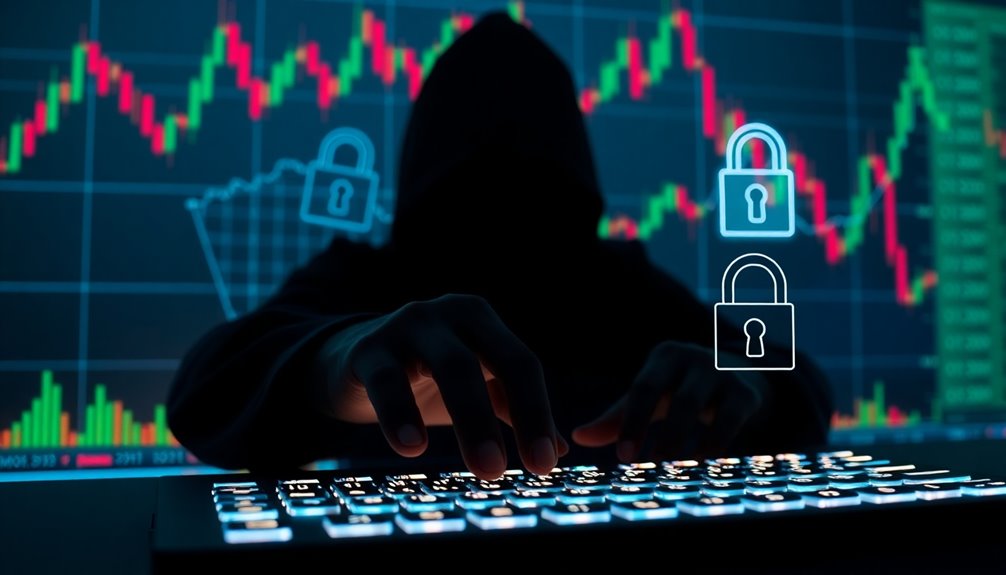
Understanding cryptocurrency price volatility is crucial for anyone looking to invest or trade in this dynamic market. Market sentiment plays a massive role; positive news can skyrocket prices, while negative reports often trigger sharp declines.
Emotional trading fueled by fear or greed leads to increased market liquidity and can create a herd mentality, causing dramatic price swings. Additionally, the balance of supply and demand is vital—limited supply, like that of Bitcoin, can drive prices up, whereas oversupply can push them down. Speculation and emotional trading further exacerbate these price movements as investors react impulsively to market changes. Notably, the average time to mine 1 Bitcoin is approximately 10 minutes per block, which affects the overall supply dynamics.
Large investors, or "whales," also influence trends with substantial trades. Lastly, security breaches can spark panic and lead to sudden price drops, reminding you of the importance of safeguarding your investments.
Corporate Blockchain Integration
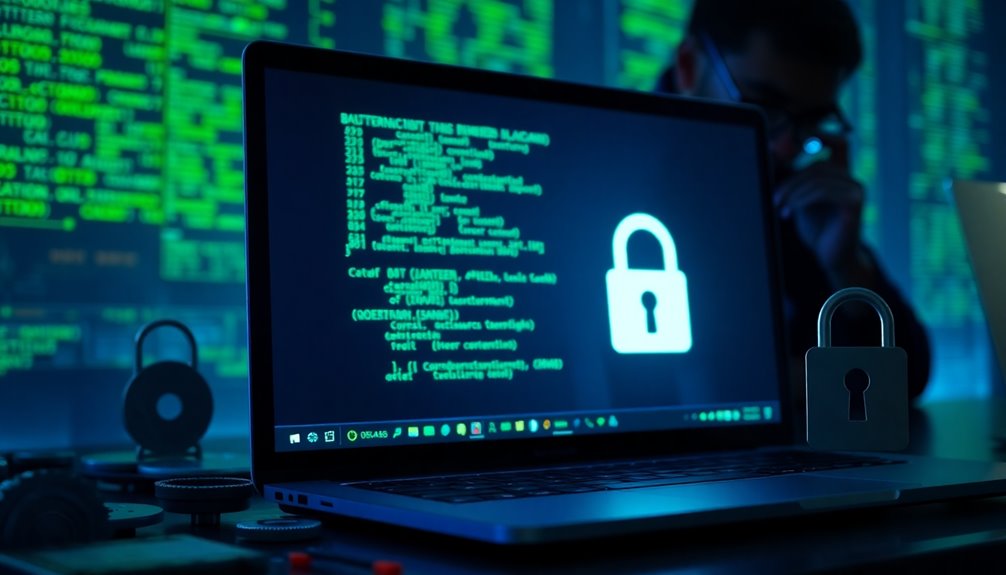
Corporate blockchain integration is revolutionizing how businesses operate by enhancing transparency, security, and efficiency.
With immutable records, you can ensure data integrity while digital signatures verify access, keeping your information secure. The decentralized storage prevents hacking, and real-time monitoring allows you to track changes instantly. Additionally, the use of analytics in optimizing asset management can provide valuable insights into your blockchain operations.
This transparency not only reduces disputes but also improves accurate reporting—essential for supply chain management and intercompany transfers.
By automating manual tasks through smart contracts, you cut down on labor costs and streamline workflows, making operations more efficient.
Instant execution speeds up processes like payments and approvals, ultimately enhancing your business agility. Moreover, higher data security ensures that sensitive information remains protected from unauthorized access and breaches.
Embracing blockchain means you're investing in a more secure, transparent, and efficient future for your organization.
Election Outcomes and Market Reactions

When election results roll in, they often set the stage for immediate market reactions that can significantly influence investors' strategies.
You might notice significant gains in U.S. equities, particularly in sectors like financials, industrials, and energy. Small-cap stocks often outperform, as seen with the Russell 2000 Index jumping over 5%. Additionally, the strengthening of the U.S. dollar may create opportunities and challenges for investors focused on international markets.
Meanwhile, bond yields rise, affecting borrowing costs, while the Federal Reserve maintains a cautious stance. The dollar may strengthen due to expectations of new tariffs, impacting global trade dynamics.
With the new administration promising pro-growth policies, you could anticipate stronger GDP growth, but keep an eye on potential inflation risks.
Staying informed helps you navigate these shifts effectively.
Emerging Technologies in Security

As cyber threats continue to evolve, emerging technologies in security are stepping up to provide innovative solutions that protect sensitive data and systems. Blockchain security offers a decentralized approach that enhances data integrity while enabling secure identity management and protecting IoT devices. Furthermore, the decentralized nature of blockchain reduces single points of failure in security systems, making it a robust solution against potential attacks. Meanwhile, quantum computing poses a challenge to traditional encryption, but it also paves the way for advanced cryptographic methods like Quantum Key Distribution. You can mitigate risks in your wallet by understanding the vulnerabilities of hot wallets compared to cold wallets. Implementing strong passwords and two-factor authentication in your hot wallet can help defend against brute-force attacks. Additionally, regularly reviewing compliance guidelines can enhance your overall security posture and ensure you are prepared for potential threats.
Frequently Asked Questions
What Is a Brute Force Attack in Bitcoin?
A brute force attack in Bitcoin is when someone tries to guess your wallet password or private key by testing every possible combination.
They use automated software to speed up the process, which can take a long time depending on the password's complexity.
If your password's weak, it's easier for them to breach your wallet.
That's why it's crucial to create strong, unique passwords to protect your Bitcoin assets effectively.
How Can I Identify if My Wallet Is Compromised?
To identify if your wallet's compromised, start by checking for unrecognized transactions.
Look for unexpected transfers or unfamiliar addresses in your transaction history.
Monitor your balance for discrepancies and unexplained withdrawals.
Pay attention to login anomalies, like repeated failed attempts or logins from unknown devices.
Lastly, stay alert for suspicious activity, such as changes in wallet settings or provider alerts.
Regular monitoring can help you catch issues early.
What Are Strong Password Practices for Bitcoin Wallets?
You might think that a simple password is enough, but it really isn't.
For your Bitcoin wallet, aim for a password that's at least 12 characters long, mixing upper and lower-case letters, numbers, and special characters. Avoid using any personal information or common phrases.
Consider using a reliable password manager to generate and store complex passwords, and make sure to update it regularly for maximum security.
Your wallet deserves the best protection!
Can Hardware Wallets Prevent Brute Force Attacks?
Yes, hardware wallets can effectively prevent brute force attacks. By storing your private keys offline, they keep them safe from internet threats.
When you set a strong PIN, it adds an extra layer of security, making unauthorized access much harder.
Additionally, your recovery phrase is securely generated and stored offline, ensuring you can regain access if needed.
What Should I Do if My Wallet Is Hacked?
If your wallet's been hacked, it's like a nightmare you can't wake up from!
First, shut down your device to halt any further damage. Disconnect from the internet and back up your wallet file immediately.
Next, change all related passwords and contact support for help. Use your seed phrase to recover access if you have it.
Finally, reinforce your security measures to prevent future hacks and safeguard your assets.
Conclusion
In the world of Bitcoin, safeguarding your wallet is essential. By understanding security risks, staying informed on regulatory changes, and adapting to price volatility, you can protect your assets. Embrace corporate blockchain integration, anticipate election outcomes, and leverage emerging technologies. Remember, your vigilance today ensures your security tomorrow. Don't let brute force tactics catch you off guard—stay proactive, stay informed, and keep your Bitcoin safe. Your financial future depends on it!
